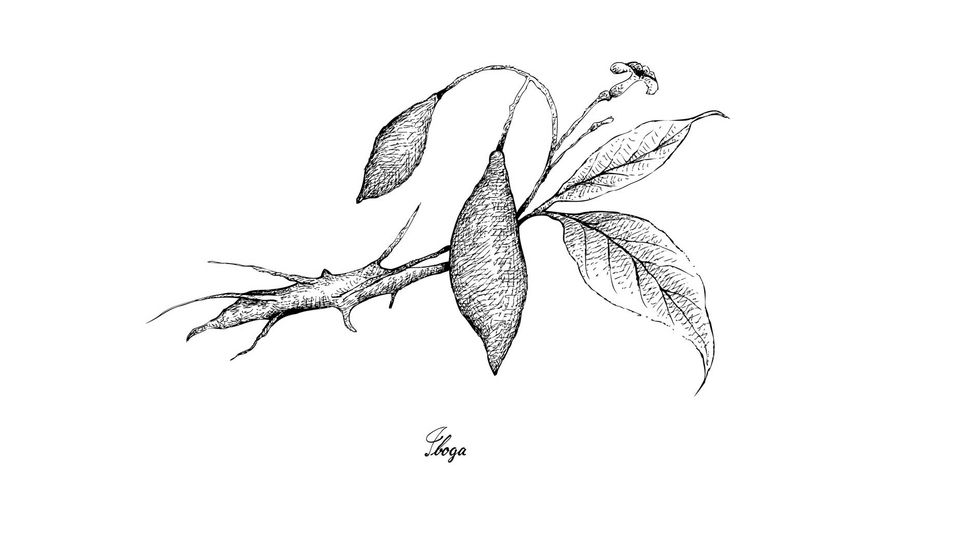African Psychedelic Ibogaine Reduces Veterans’ Brain Injury Symptoms in Small Trial
A traditional African psychedelic drug reduced symptoms of veterans’ brain injury in a small clinical study published in Nature Medicine.

Complete the form below to unlock access to ALL audio articles.
A traditional African psychedelic drug reduced symptoms of veterans’ brain injury in a small clinical study published in Nature Medicine.
The trial paired the drug, ibogaine, with magnesium to reduce the risk of cardiac side effects. Authors say the drug has a much broader treatment range than other psychedelics, but the trial’s limited size and lack of control group mean more research will be required to guarantee ibogaine’s efficacy and safety.
Using traditional drugs in clinical trials
The second rise of psychedelics has rocked psychiatry. A significant element of this work has involved revisiting psychoactive compounds used by indigenous communities for millennia. Representatives from these groups have repeatedly raised concerns that this process risks shutting indigenous voices out of the processes that they pioneered.
Trials involving DMT, an intensely hallucinogenic compound that is the main ingredient in the indigenous brew ayahuasca, have produced promising initial results showing the drug’s safety in healthy volunteers. But another traditional psychedelic has remained unexamined by Western researchers, until now: ibogaine.
Ibogaine, like DMT, occurs naturally in rainforest shrubs. But ibogaine’s source, Tabernanthe iboga, is native to West Central Africa, rather than valleys of the Amazon. Extracts from the plant have been used by indigenous communities in the region to fight off hunger and thirst. At stronger dosages, ibogaine has been leveraged for religious ceremonies, where it produces powerful visions when eaten.
Nolan Williams, an associate professor at Stanford University who led the new study, said that the drug could be used to treat more than the psychiatric disorders that have been the focus of most psychedelic trials. “This seems to be a neurorepair drug; a pretty profound neurotrophic factor,” said Williams.
That’s a significant factor for combat-affected veterans. “Very few” vets report having PTSD alone, Williams added – many have co-occurring psychiatric and functional problems as a result of their combat trauma.
While newly rebranded drug company Lykos – formerly known as MAPS PBC – has advanced to the cusp of gaining approval for its formulation of MDMA and psychotherapy for treating PTSD, Williams said that these other combat sequelae aren’t addressed by MDMA. Ibogaine, he said, could be a more complete therapy. Nevertheless, ibogaine comes attached with substantial risks that explain why it has remained unstudied in the West: the drug can induce potentially fatal cardiac effects, like irregular heartbeats.
Psychedelics beyond the border
Like most other psychedelics, ibogaine is a prohibited substance in the US. But ibogaine can be administered legally in clinics in both Canada and Mexico. In the new study, Williams and colleagues followed a group of 30 US special forces veterans across the border to record data on their experiences with ibogaine in a facility run by Ambio Life Sciences. All of the veterans in the work were reckoning with the symptoms of traumatic brain injury, a condition most commonly caused by blast exposure in veterans. Veterans complete one in five of all suicides in the US.
In Ambio’s facility, the veterans received oral doses of ibogaine, combined with magnesium, which aimed to reduce the drug’s cardiac risks. The impact of the treatment on the veterans’ symptoms was rapid and life-changing, but with important caveats. As the former soldiers in the study traveled with the express purpose of taking ibogaine, there was no control group. Given the hype around psychedelics, this opens the possibility that participants’ improvements may be partly due to their expectations of recovery.
Before the treatment, the veterans scored, on average, 30.2 on the World Health Organization’s Disability Assessment Schedule, meaning they were classed as mildly to moderately disabled. After one month of treatment, this rating plunged to 5.1 on average.
Psychiatric evaluation tools showed the level of the veterans’ PTSD and depression symptoms had fallen by 88% and 87% respectively over the same period. In a press release issued by Stanford, Sean, a 51-year-old veteran living in Arizona said that ibogaine had saved his life. “Before the treatment, I was living life in a blizzard with zero visibility and a cold, hopeless, listless feeling. After ibogaine, the storm lifted.” Williams said these testimonies were “powerful”.
At the one-month timepoint, none of the veterans in the study had reported any cardiac symptoms. Functional tests of the veterans’ cognitive ability showed either no change or improvement after treatment, but the study did not assess any measures of direct brain injury, meaning more research will be needed to evidence the drug’s supposed neurorepair effects in humans.
Williams intends to spearhead that work by petitioning for a US-based trial, using the data generated in Mexico to convince the FDA of the drug’s safety.
Nolan Williams was talking to Ruairi Mackenzie, Senior Science Writer for Technology Networks
About the interviewee
Nolan Williams is an Associate Professor within the Department of Psychiatry and Behavioral Sciences and the Director of the Stanford Brain Stimulation Lab.
Reference: Cherian KN, Keynan JN, Anker L, et al. Magnesium–ibogaine therapy in veterans with traumatic brain injuries. Nat Med. 2024:1-9. doi:10.1038/s41591-023-02705-w




